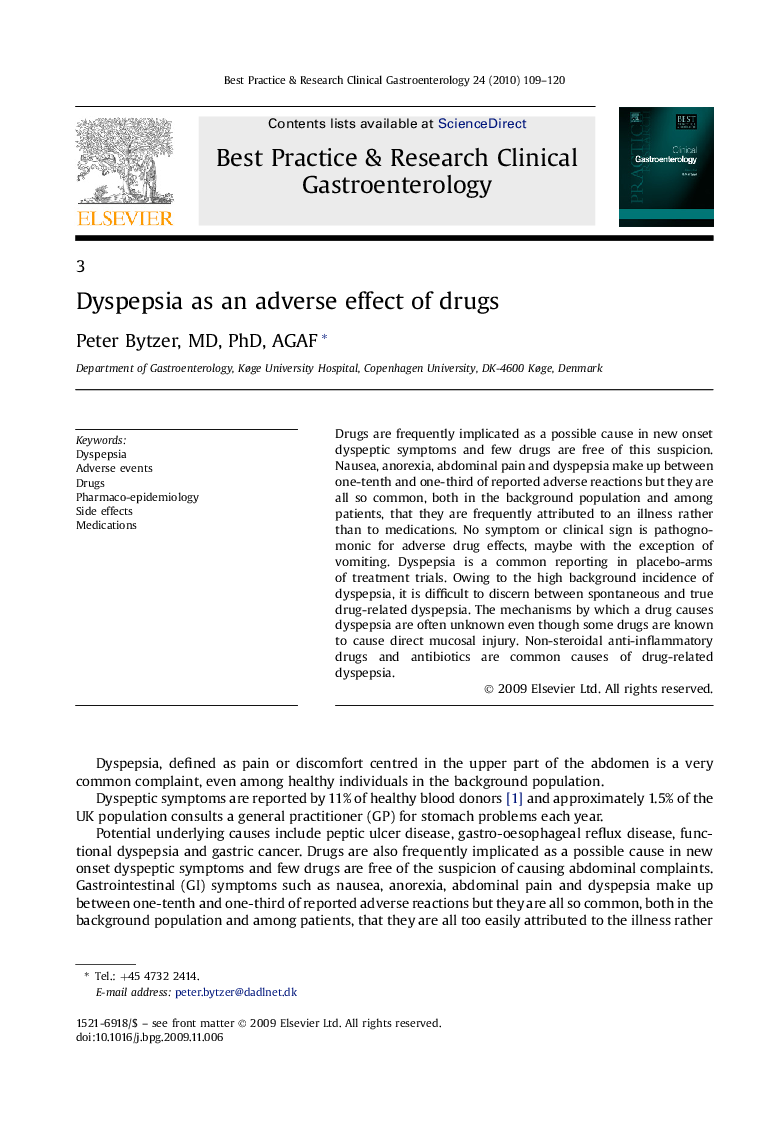| Article ID | Journal | Published Year | Pages | File Type |
|---|---|---|---|---|
| 3254727 | Best Practice & Research Clinical Gastroenterology | 2010 | 12 Pages |
Drugs are frequently implicated as a possible cause in new onset dyspeptic symptoms and few drugs are free of this suspicion. Nausea, anorexia, abdominal pain and dyspepsia make up between one-tenth and one-third of reported adverse reactions but they are all so common, both in the background population and among patients, that they are frequently attributed to an illness rather than to medications. No symptom or clinical sign is pathognomonic for adverse drug effects, maybe with the exception of vomiting. Dyspepsia is a common reporting in placebo-arms of treatment trials. Owing to the high background incidence of dyspepsia, it is difficult to discern between spontaneous and true drug-related dyspepsia. The mechanisms by which a drug causes dyspepsia are often unknown even though some drugs are known to cause direct mucosal injury. Non-steroidal anti-inflammatory drugs and antibiotics are common causes of drug-related dyspepsia.
